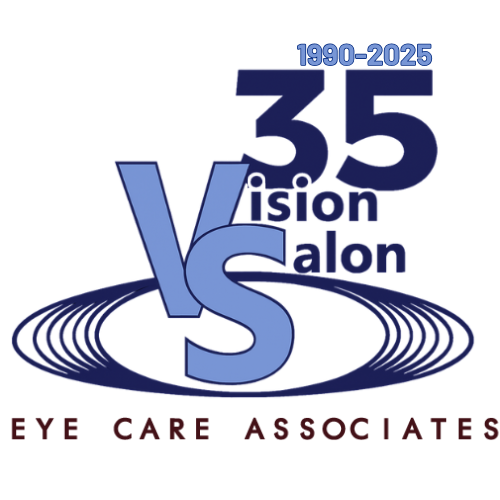When was the last time you got an eye exam?
It can be all too easy to postpone getting a comprehensive eye exam, especially if you feel your vision is fine. Getting regular eye exams is about more than your vision, though! Eye exams are an important part of your overall health care.
In this blog, we’ll share five reasons why making time for an eye exam can benefit your vision, health, and overall wellness.
1. Detect underlying health issues
Did you know that the retina, the light-sensitive layer in the back of your eye, is the only place in your body where blood vessels can be seen directly? During an eye exam, your eye doctor can spot underlying health issues of which you may not be aware, such as diabetes, hypertension, and high cholesterol, because of how they impact your blood vessels.
2. Alleviate digital eye strain
If you work in front of a computer all day, you may experience digital eye strain.
The high visual demands of looking at screens of various sizes throughout the day can cause headaches, blurred vision, neck and shoulder pain, eye strain, and dry eyes. Poor lighting, sitting too close or too far from your screen, and uncorrected vision problems can worsen these symptoms.
A comprehensive eye exam can help identify any underlying vision issues, and your eye doctor may recommend eyeglasses with special lenses to alleviate digital eye strain.
3. Prevent damage from eye diseases
Perhaps the most important reason to get regular eye exams is to prevent damage from eye diseases. Some sight-threatening eye diseases have little to no symptoms in the early stages, and the only way to know you have them is by getting an eye exam.
- Glaucoma is often called the “sneak thief of sight” because it usually has no symptoms in its early stages. Many people don’t realize they have it until significant vision loss has already occurred.
- Diabetic eye disease can cause vision loss in diabetics, and there may be mild or no symptoms in the early stages.
- Macular degeneration is another serious eye disease without symptoms in the early stages, and it progresses gradually. By the time you notice vision loss, the disease is in an advanced stage, and there is currently no cure for it.
The best way to prevent vision loss from serious eye diseases is to get regular eye exams, where they can be diagnosed and treated.
4. Identify vision changes early on
It may seem like your vision is fine, but your brain can compensate for small changes without you noticing. Small vision changes can affect how you feel every day while driving, working, and engaging in other activities. Seeing your best is an important part of living a high-quality life!
5. Update your prescription for glasses or contact lenses
If you currently wear eyeglasses or contact lenses, then you need regular eye exams to assess your vision and to get an updated prescription. As mentioned already, vision can change gradually, so you might be surprised to find that a fresh prescription could help you see even more clearly!
Have you been putting off your eye exam?
Our optometrists at Vision Salon Eye Care Associates have the expertise and the latest technology to provide high-quality eye health and vision care. Make your health and vision a priority and schedule a comprehensive eye exam today!





